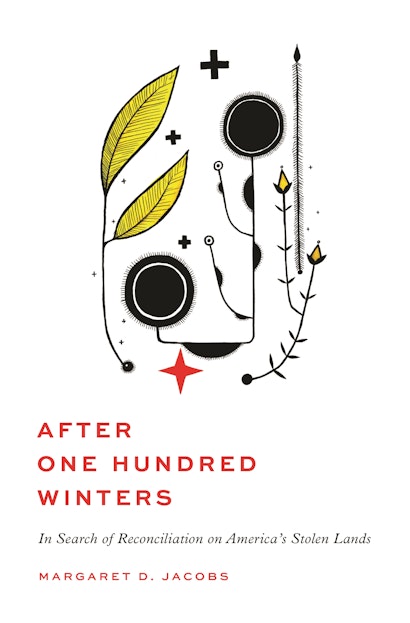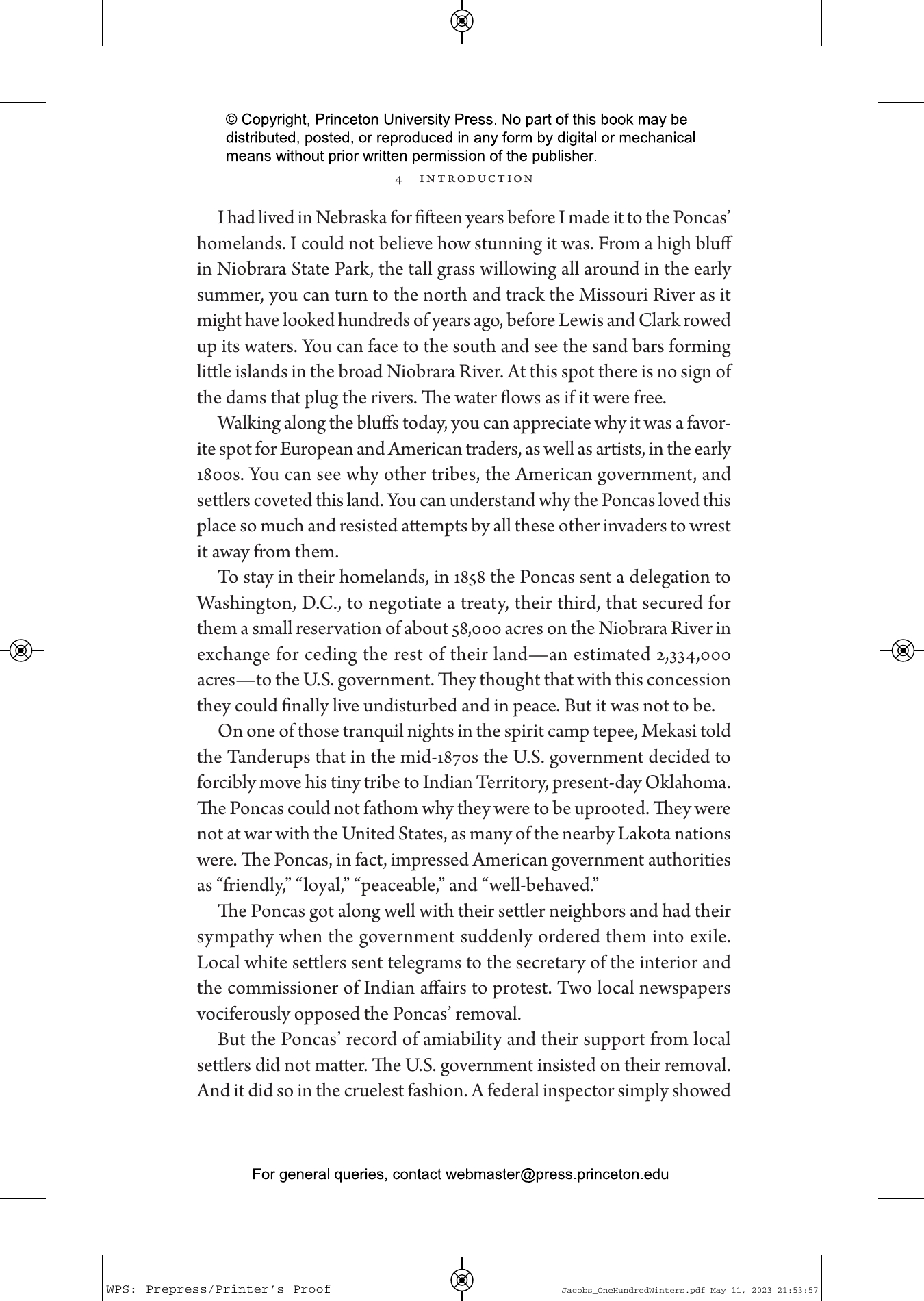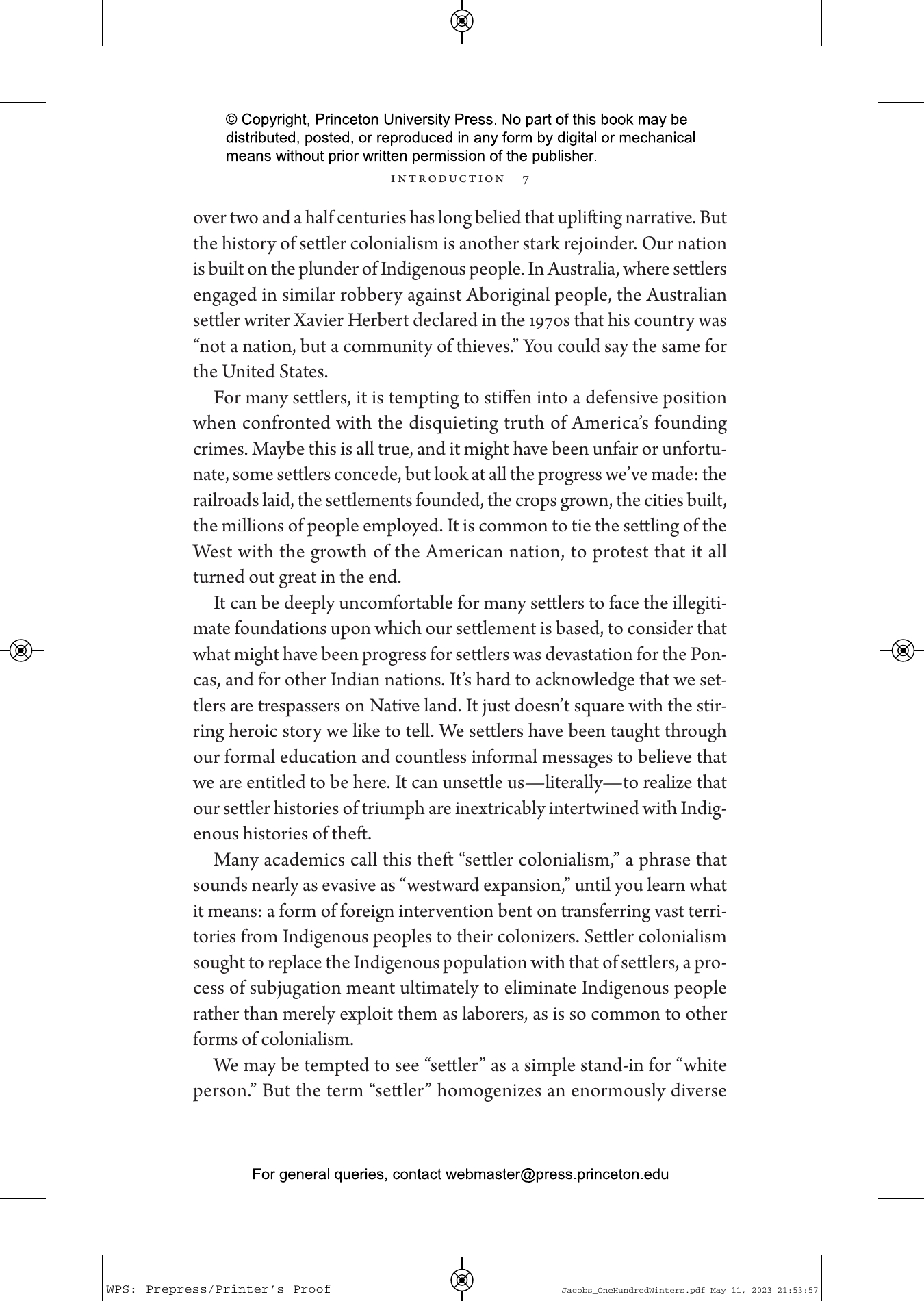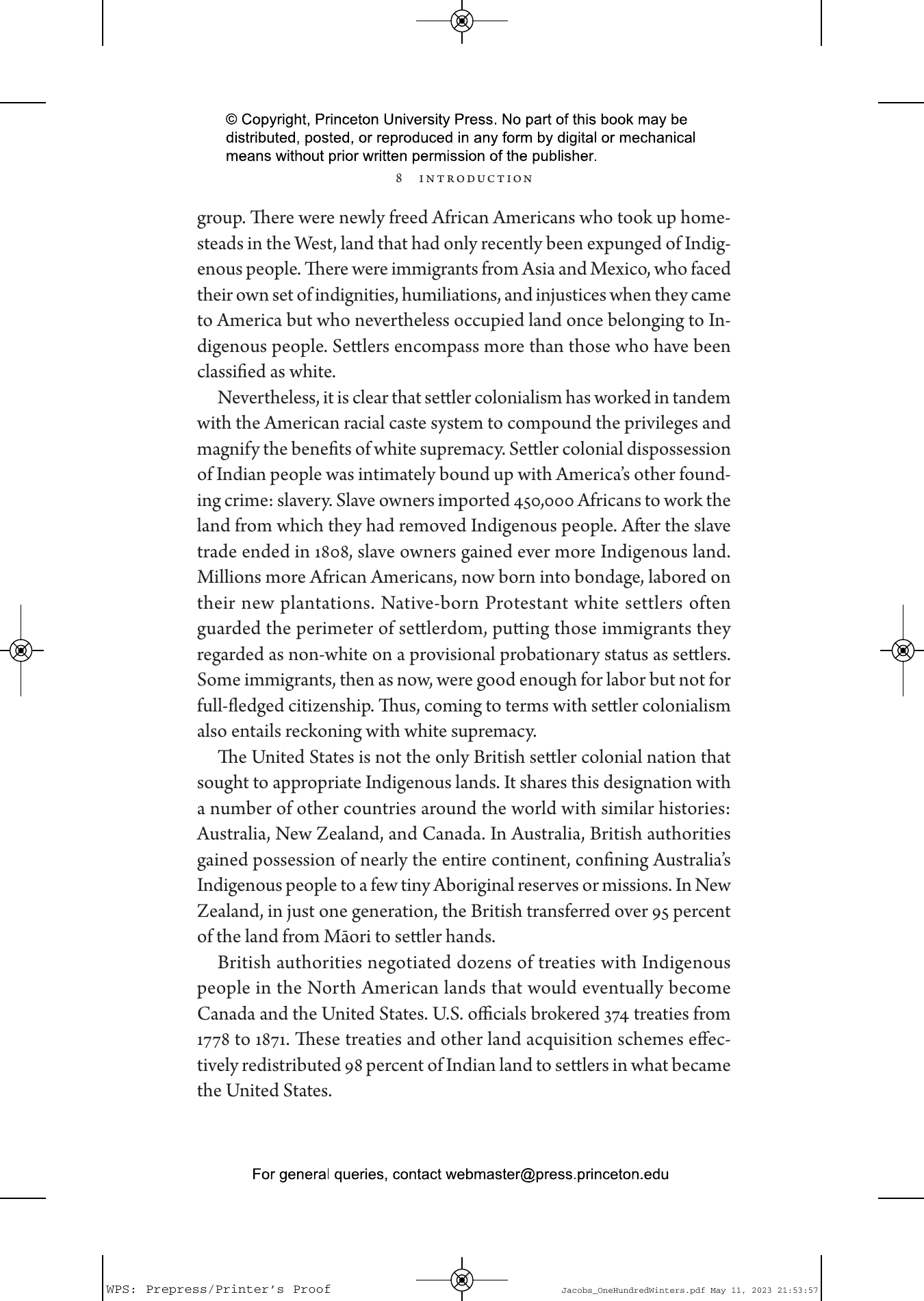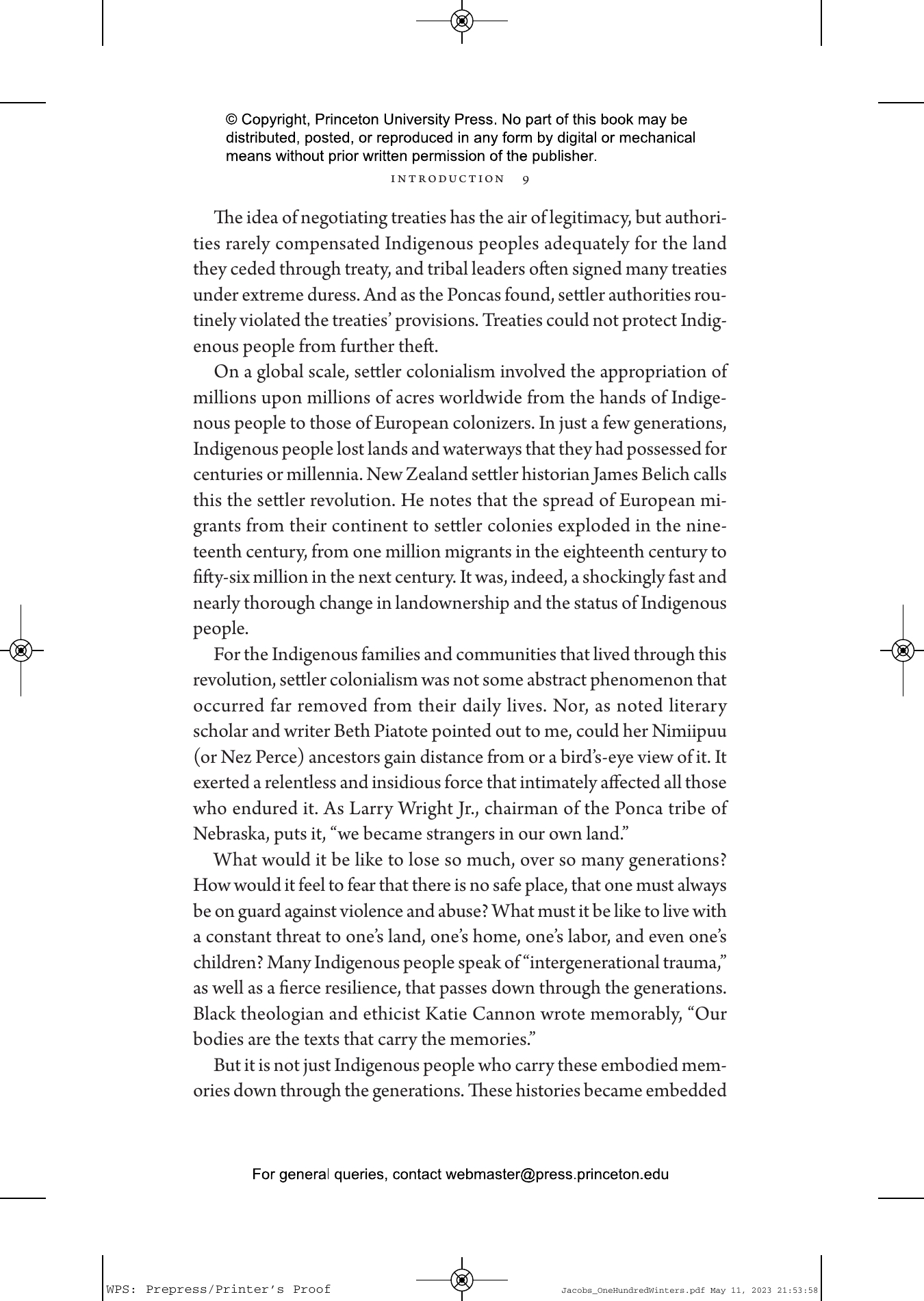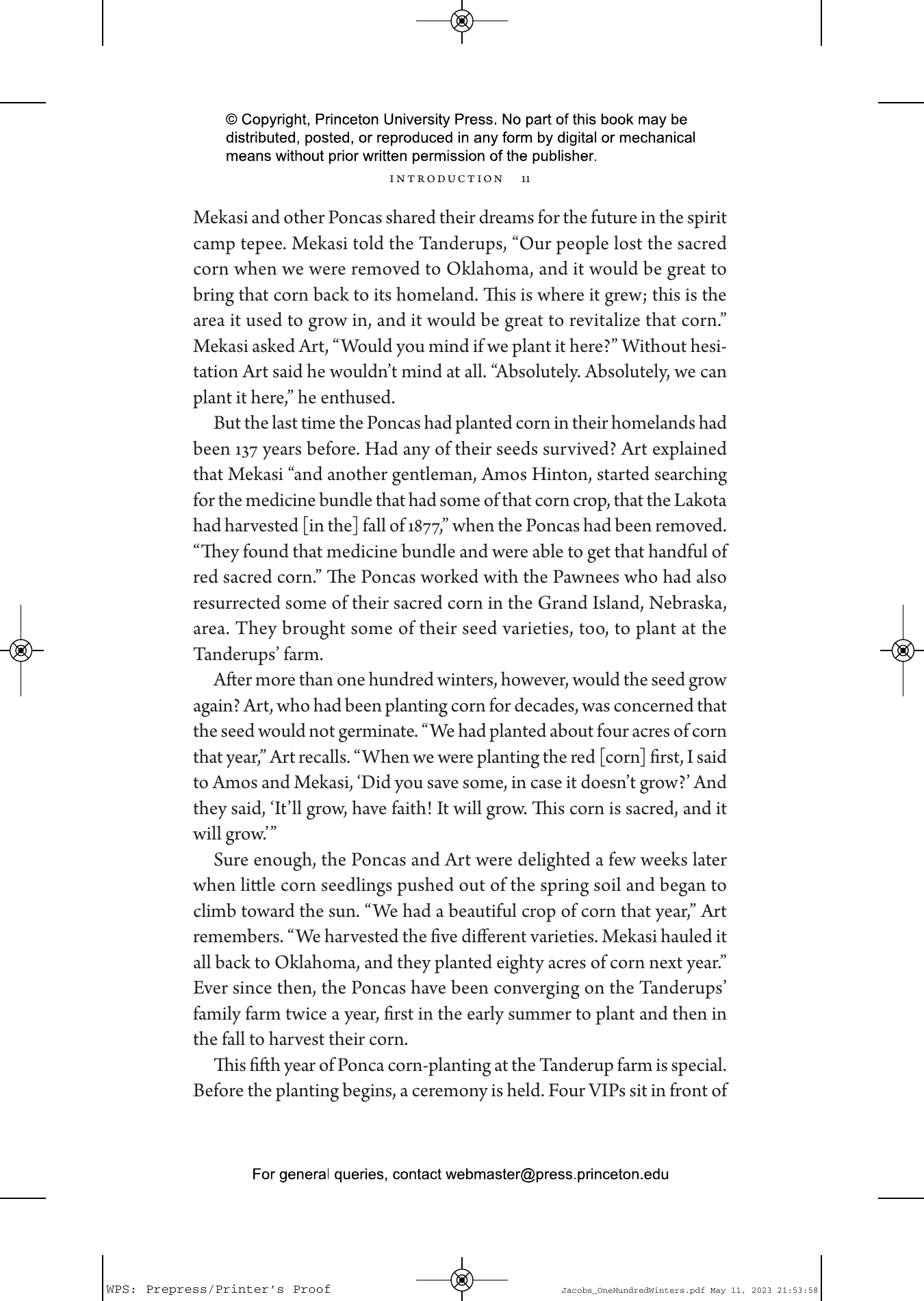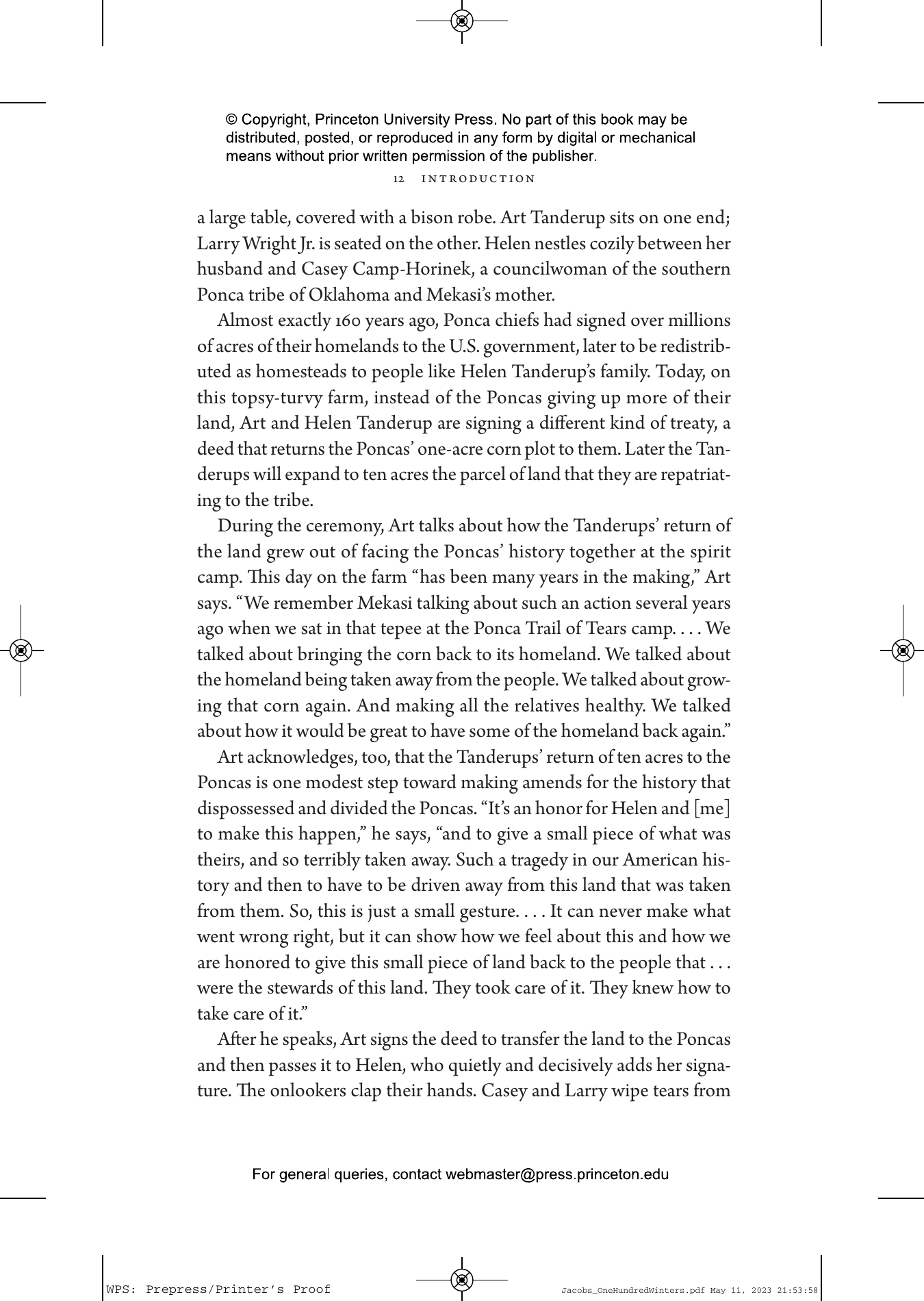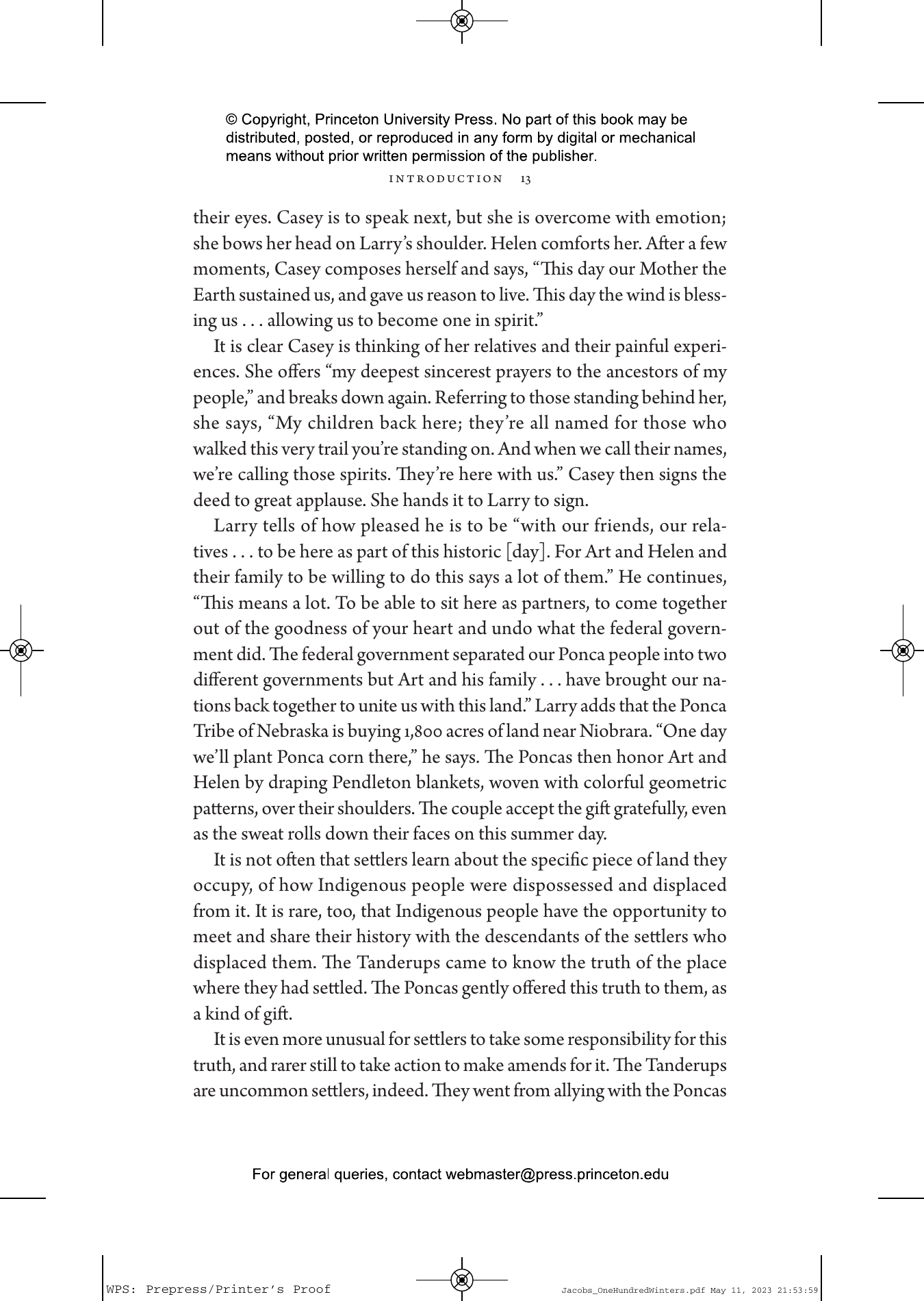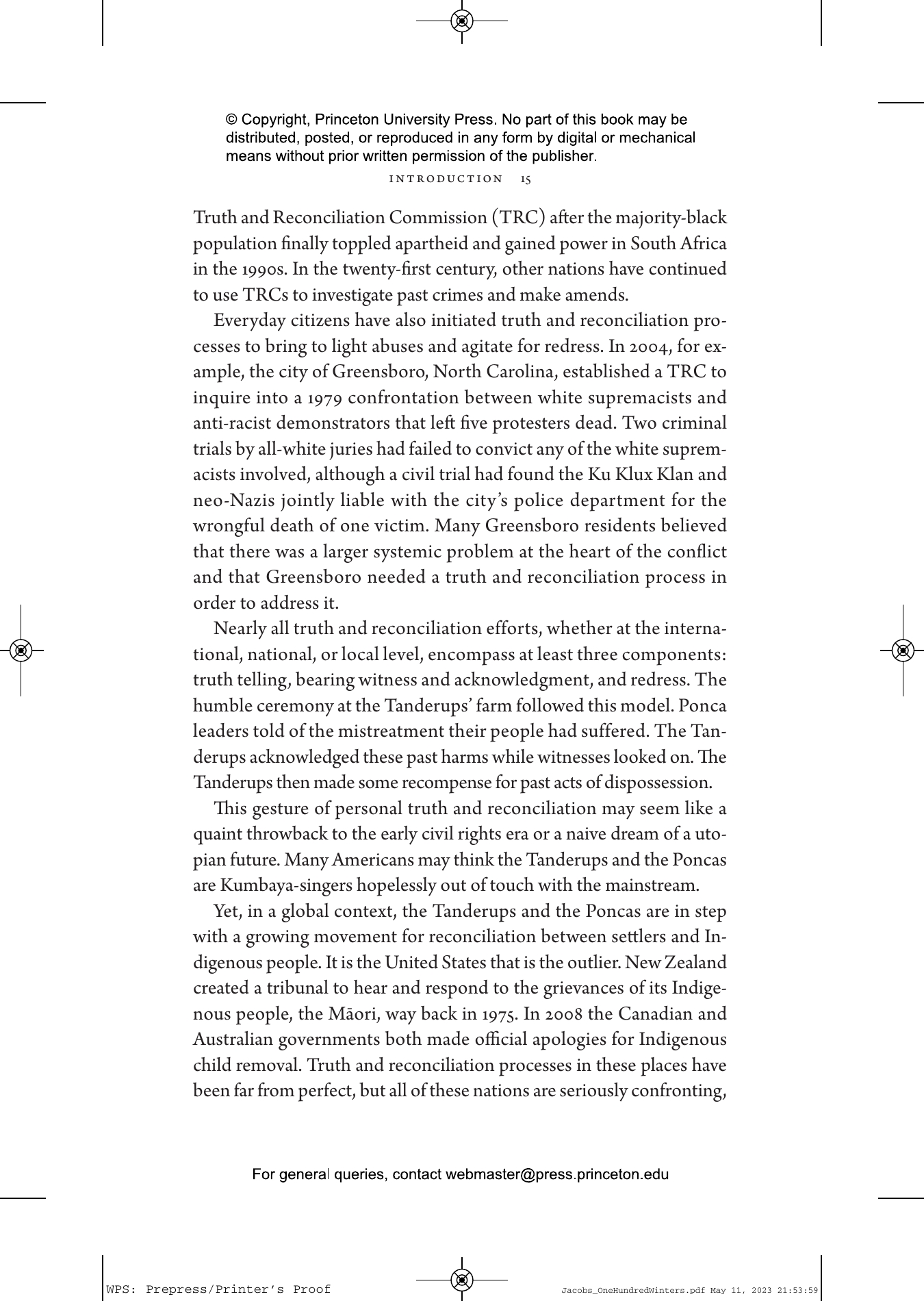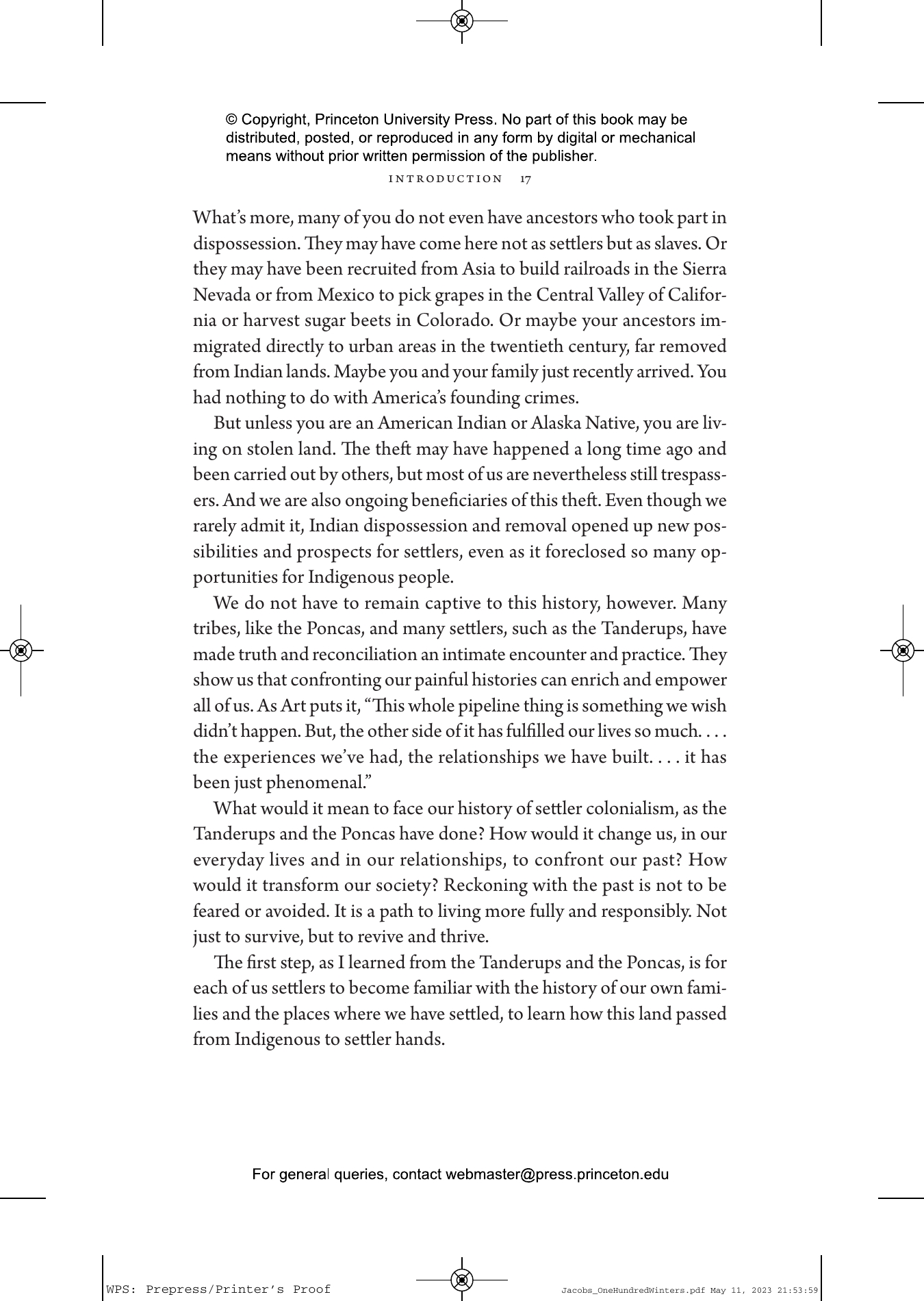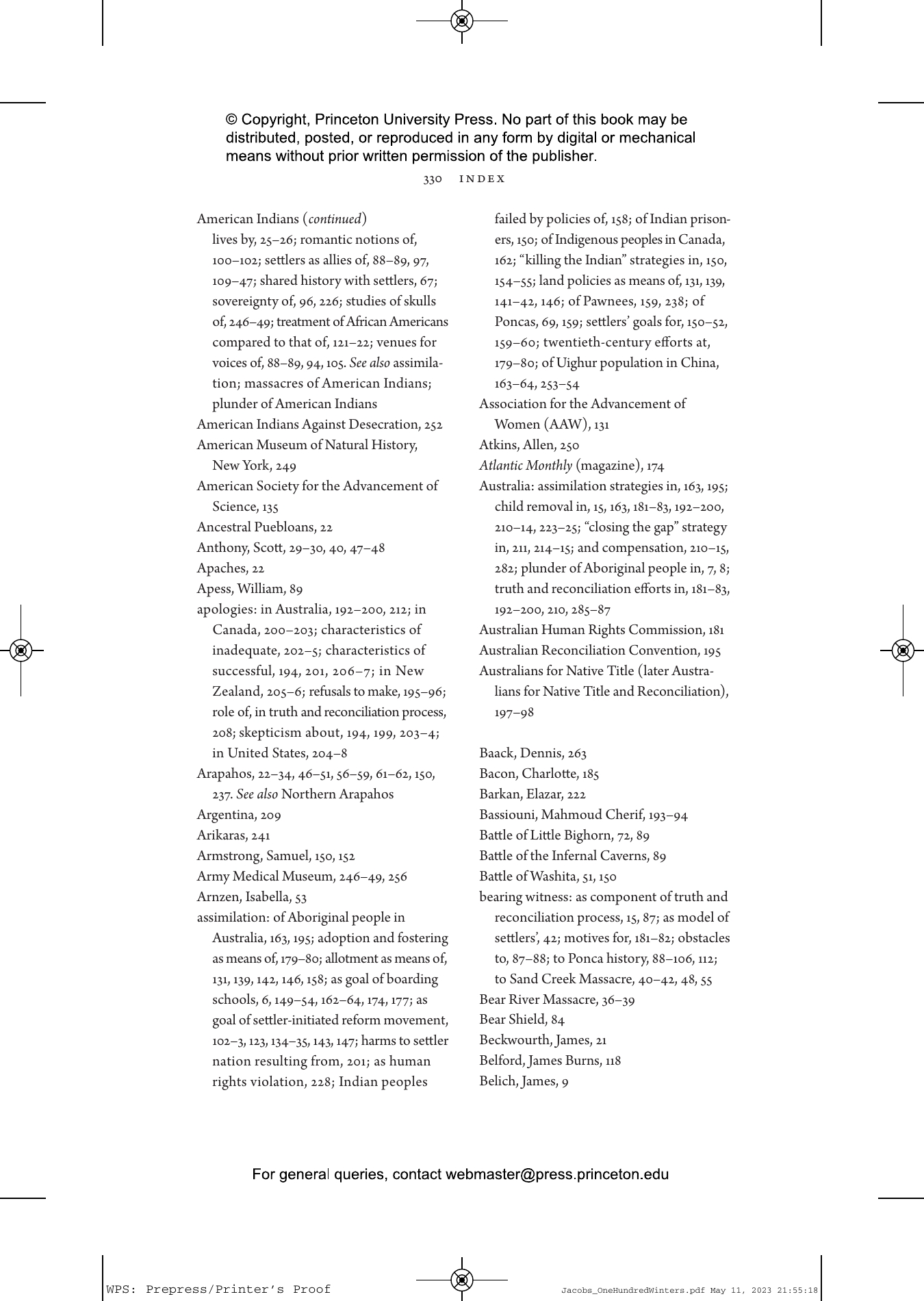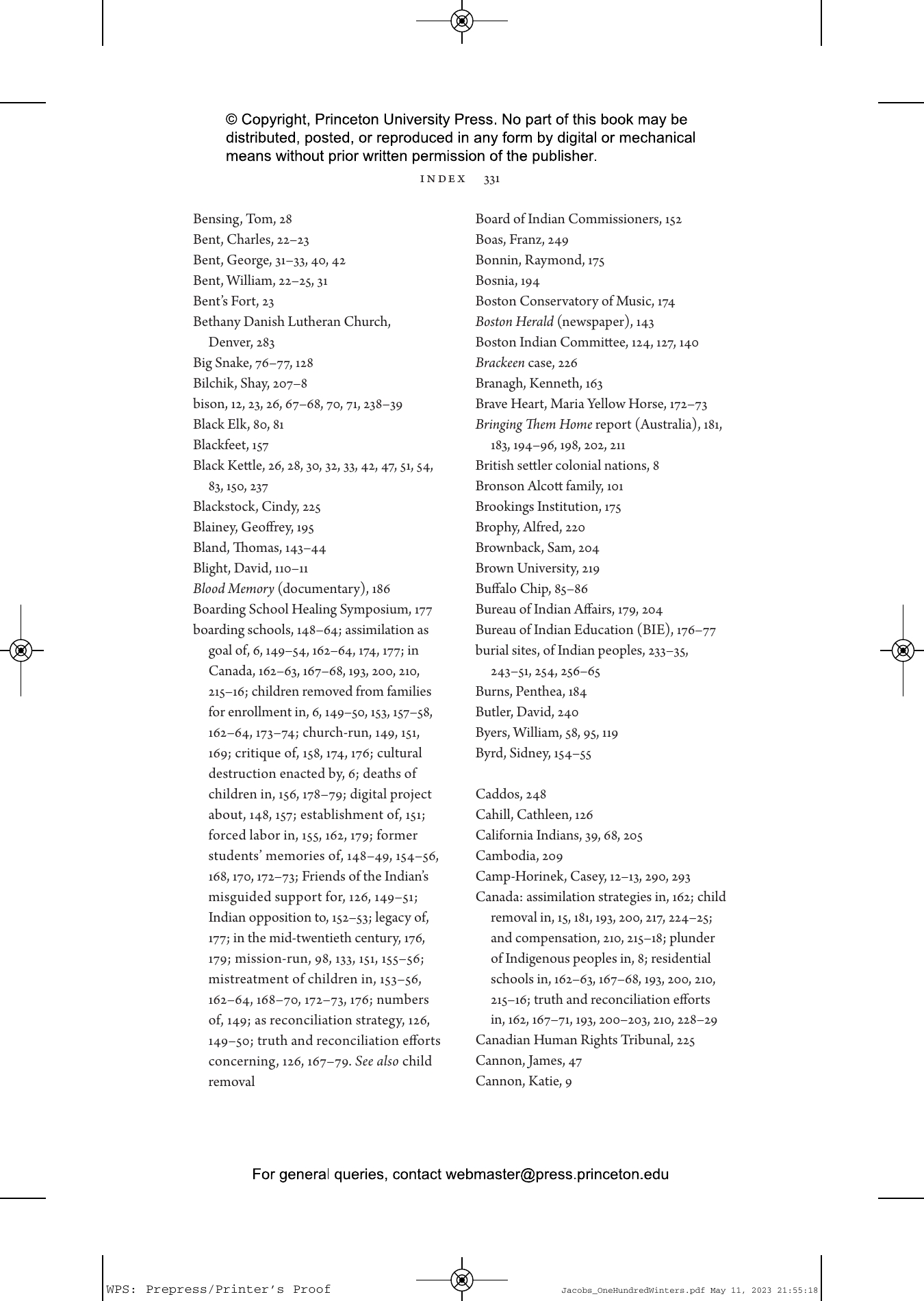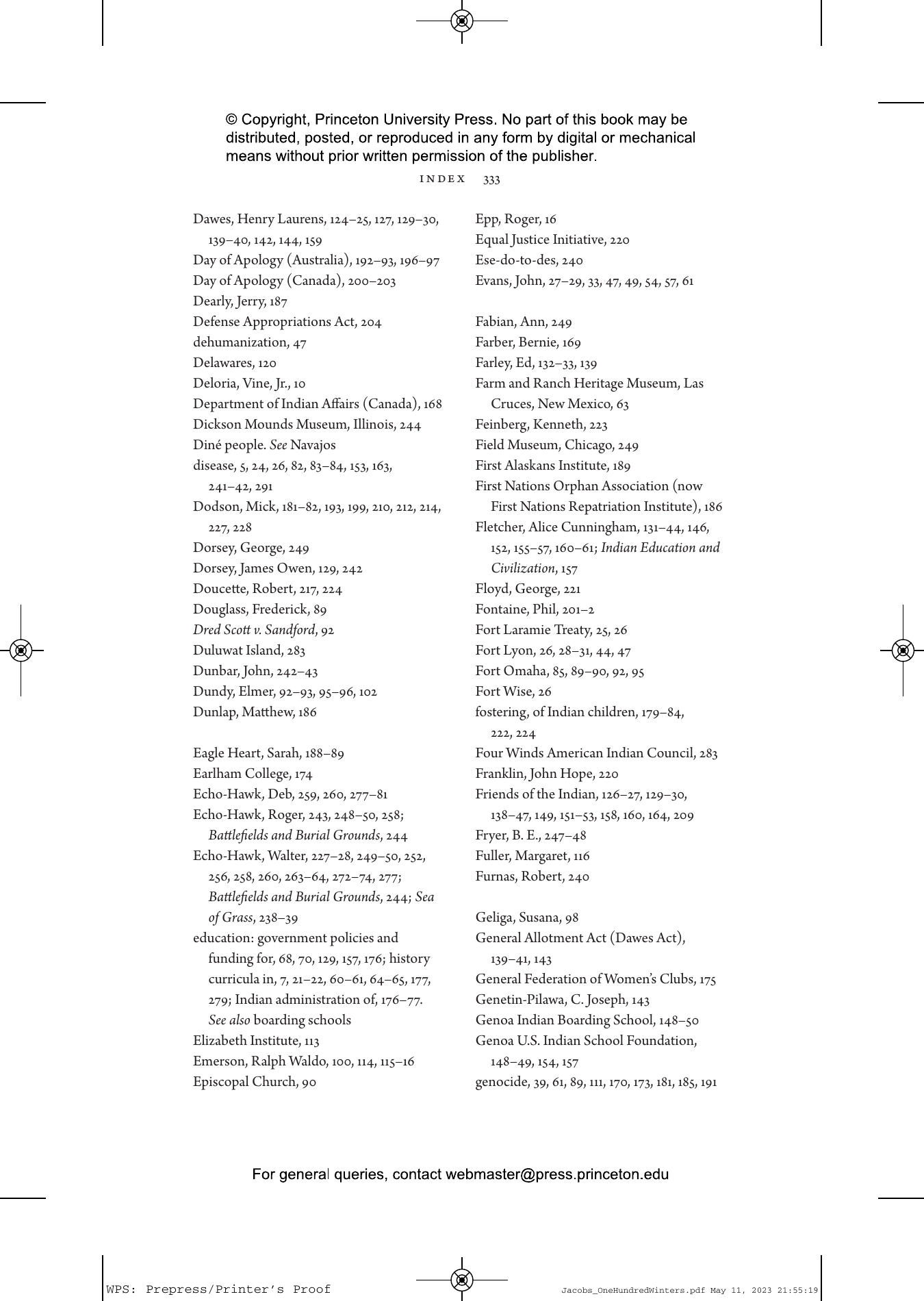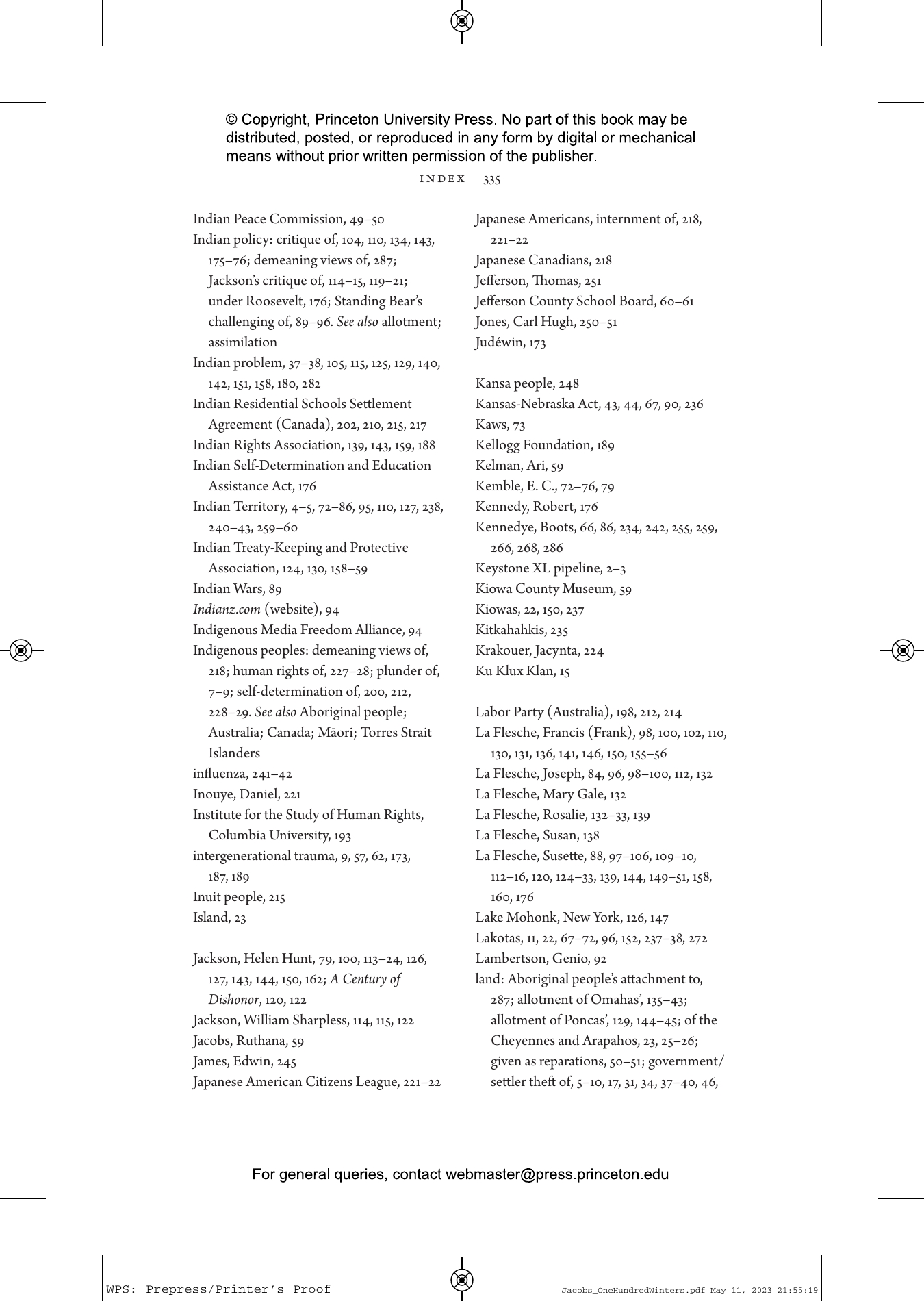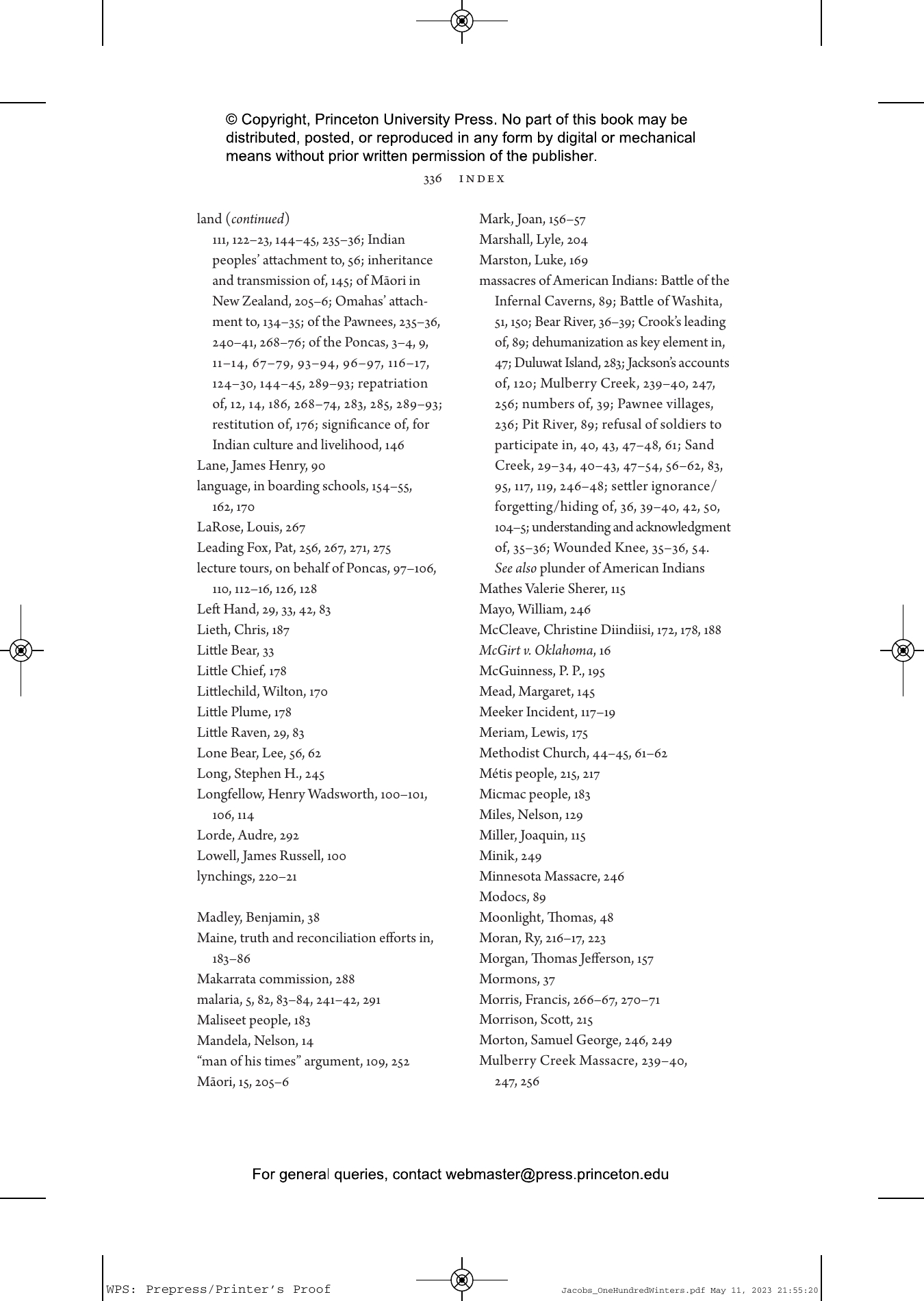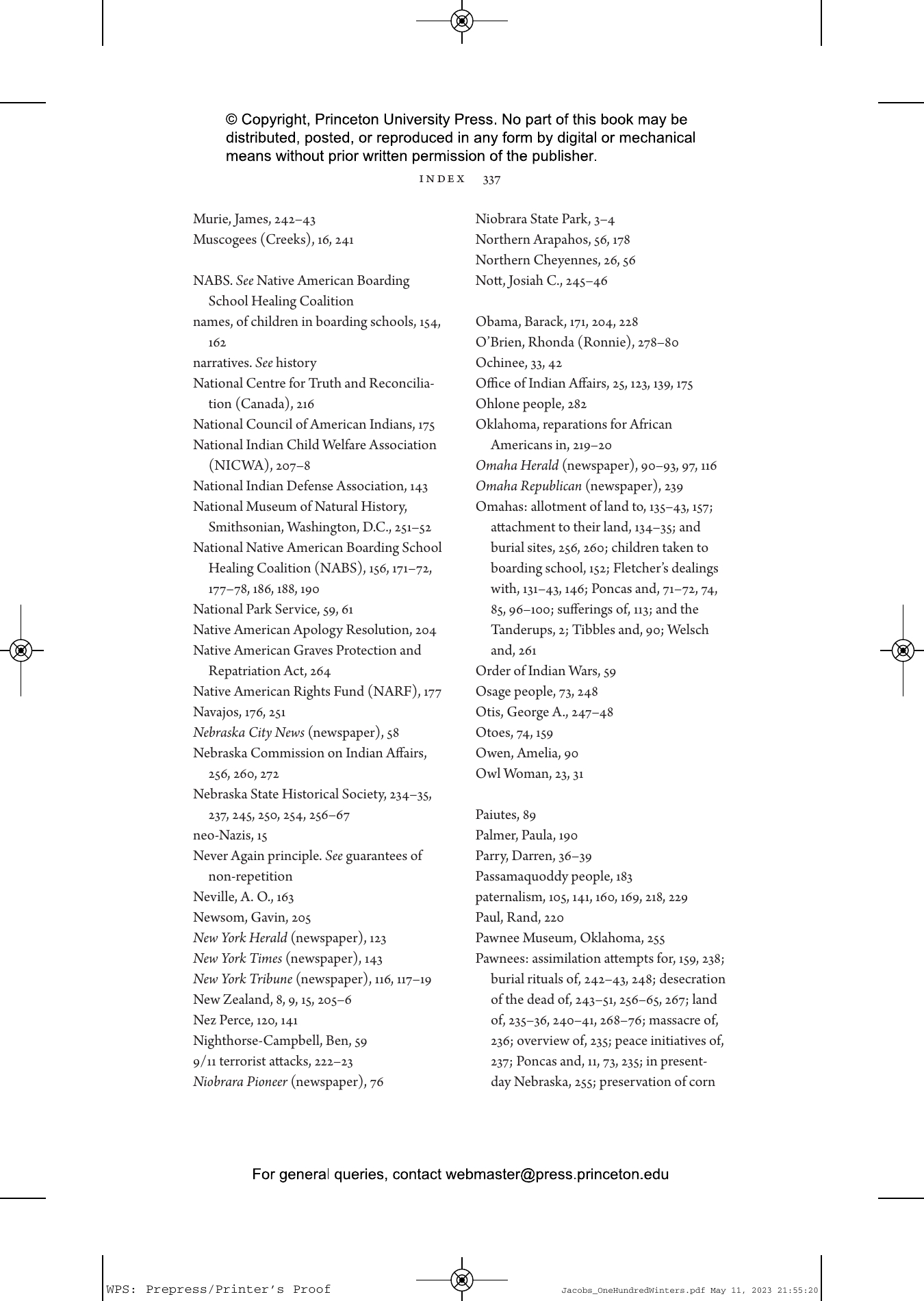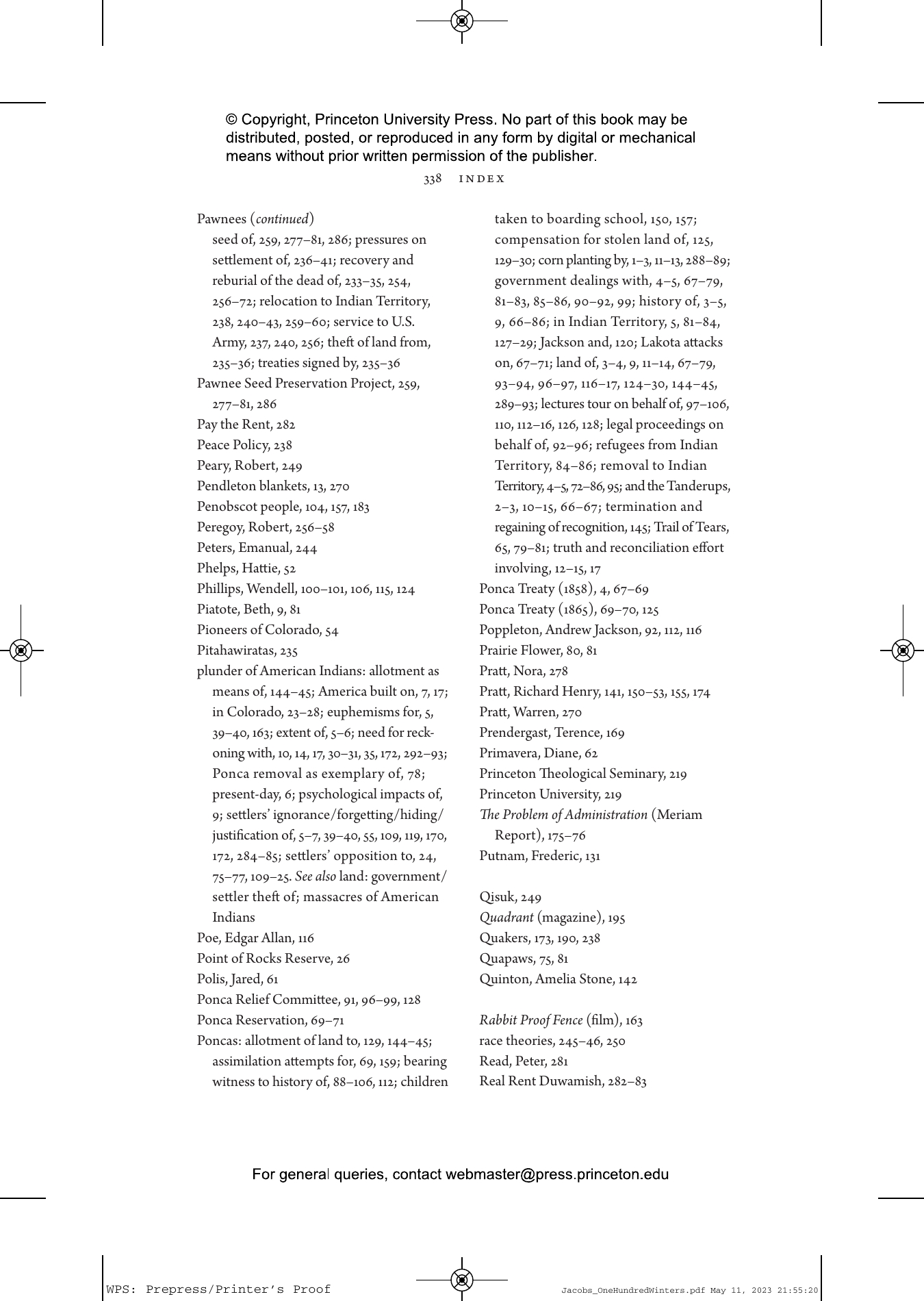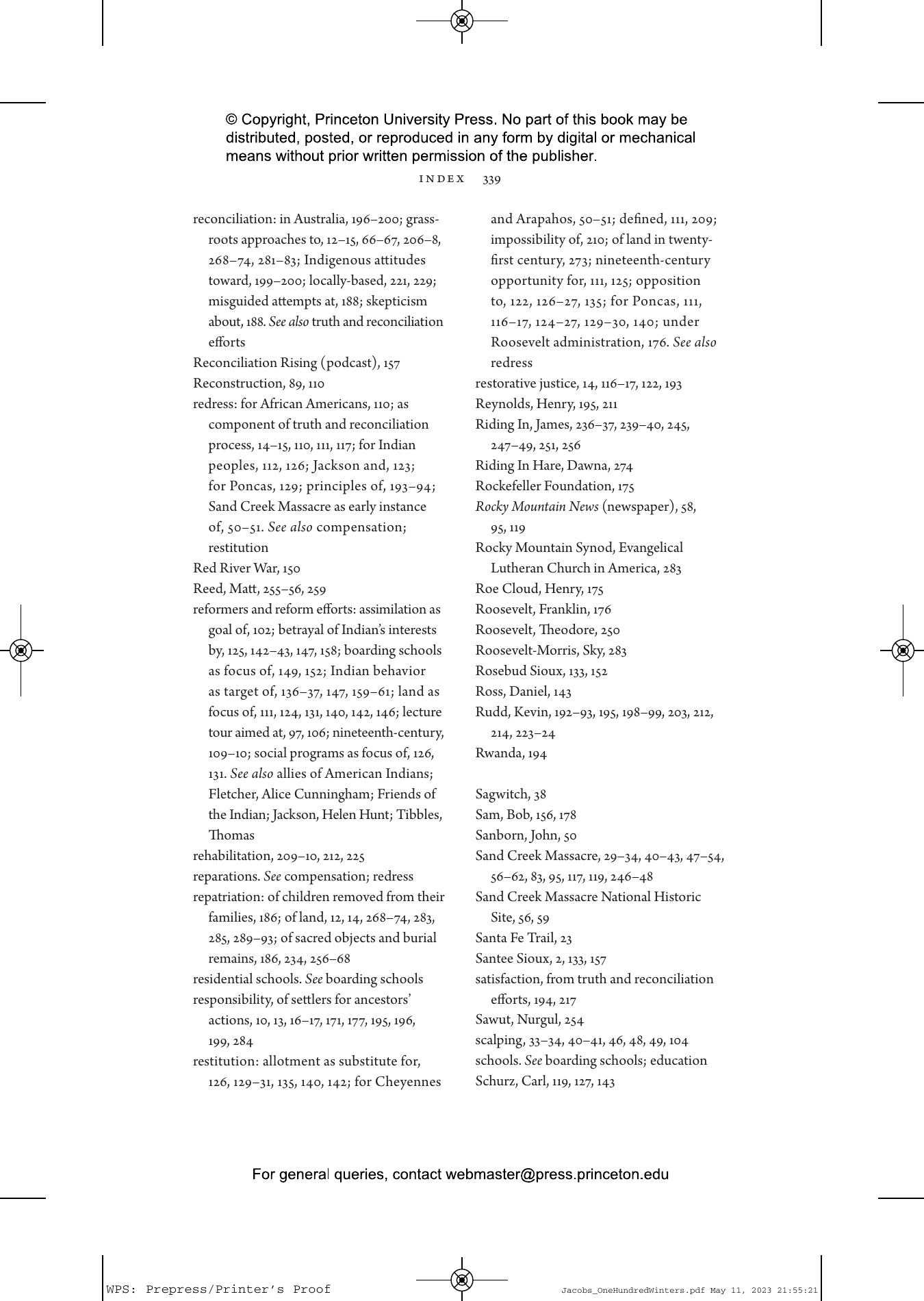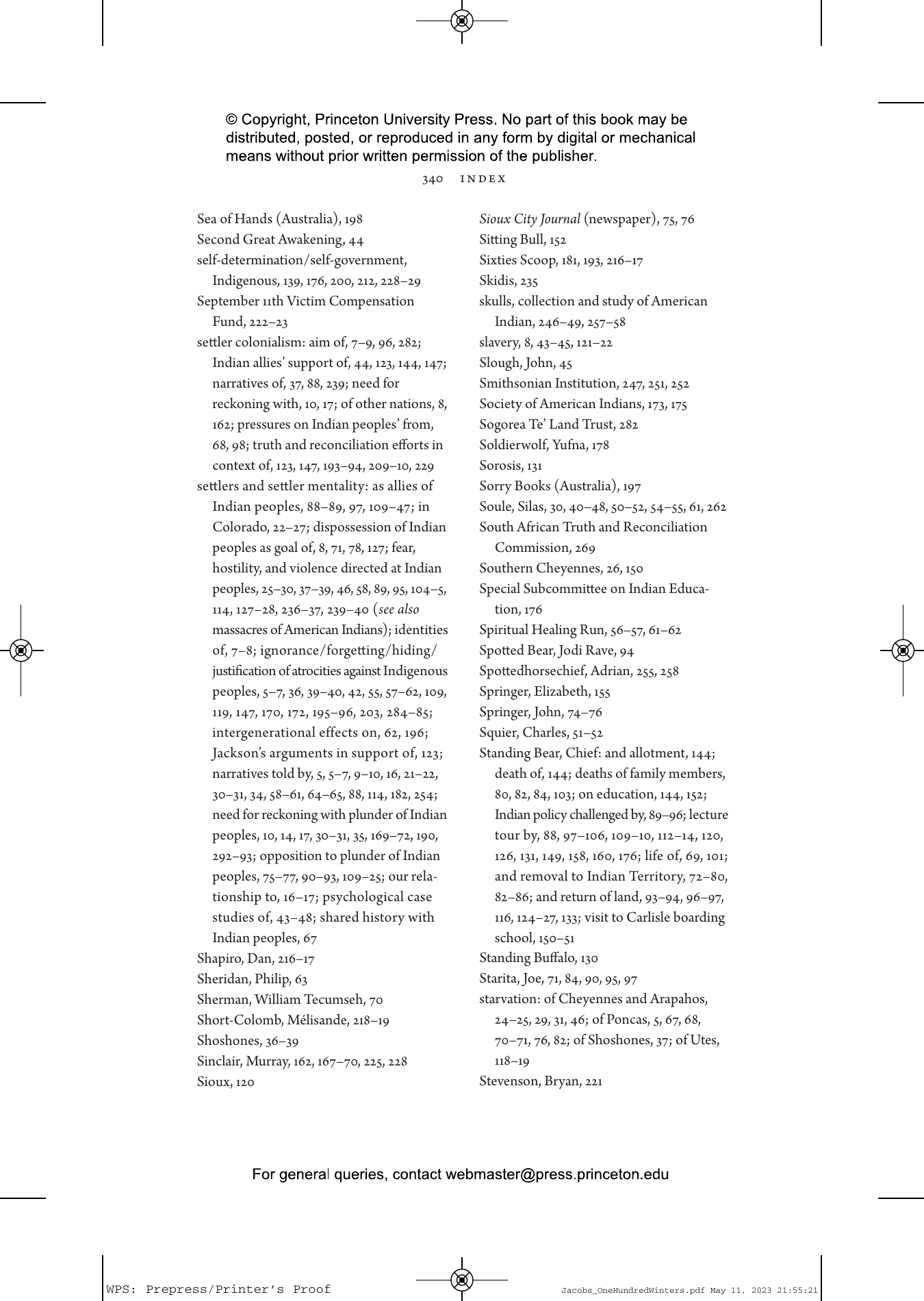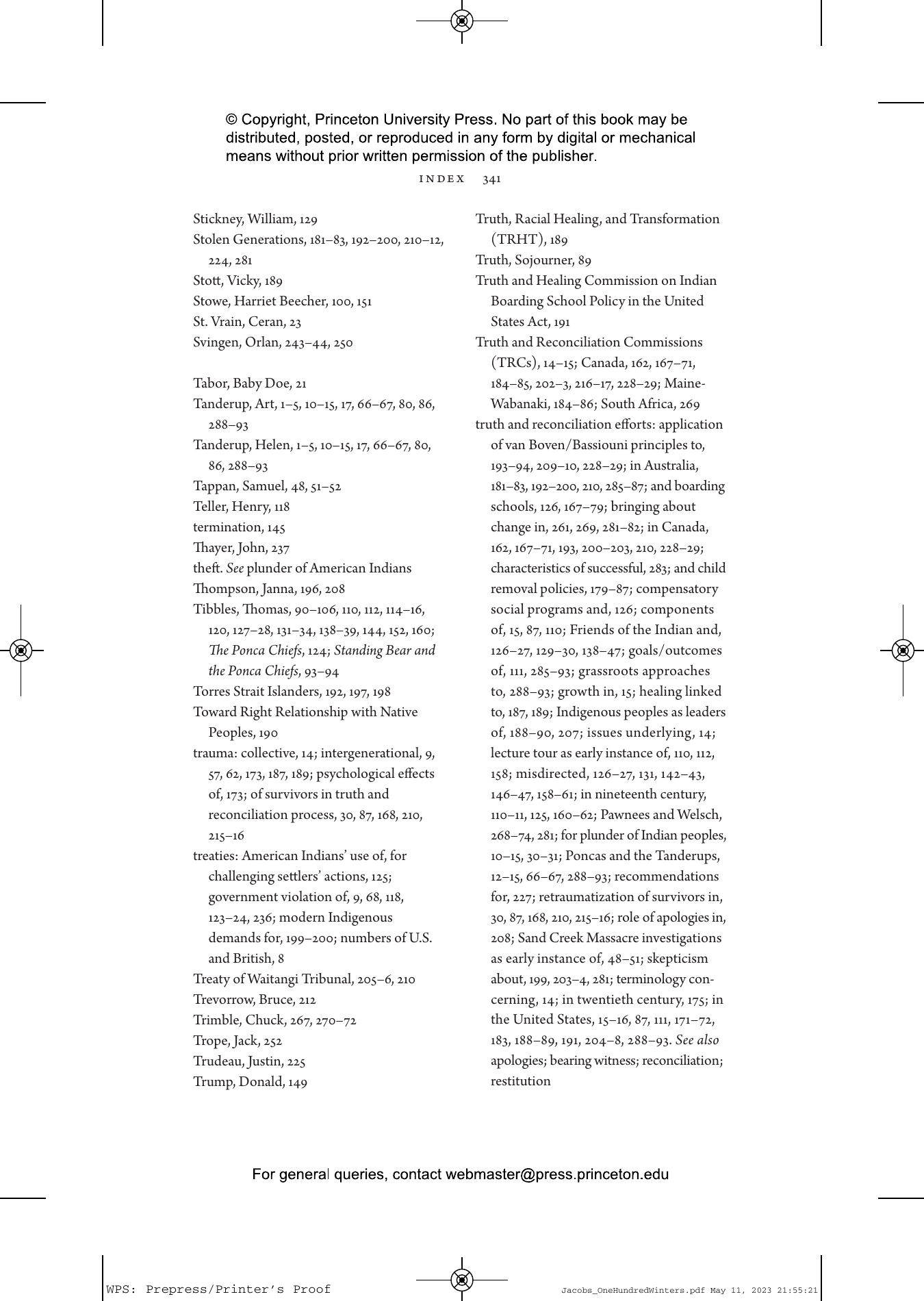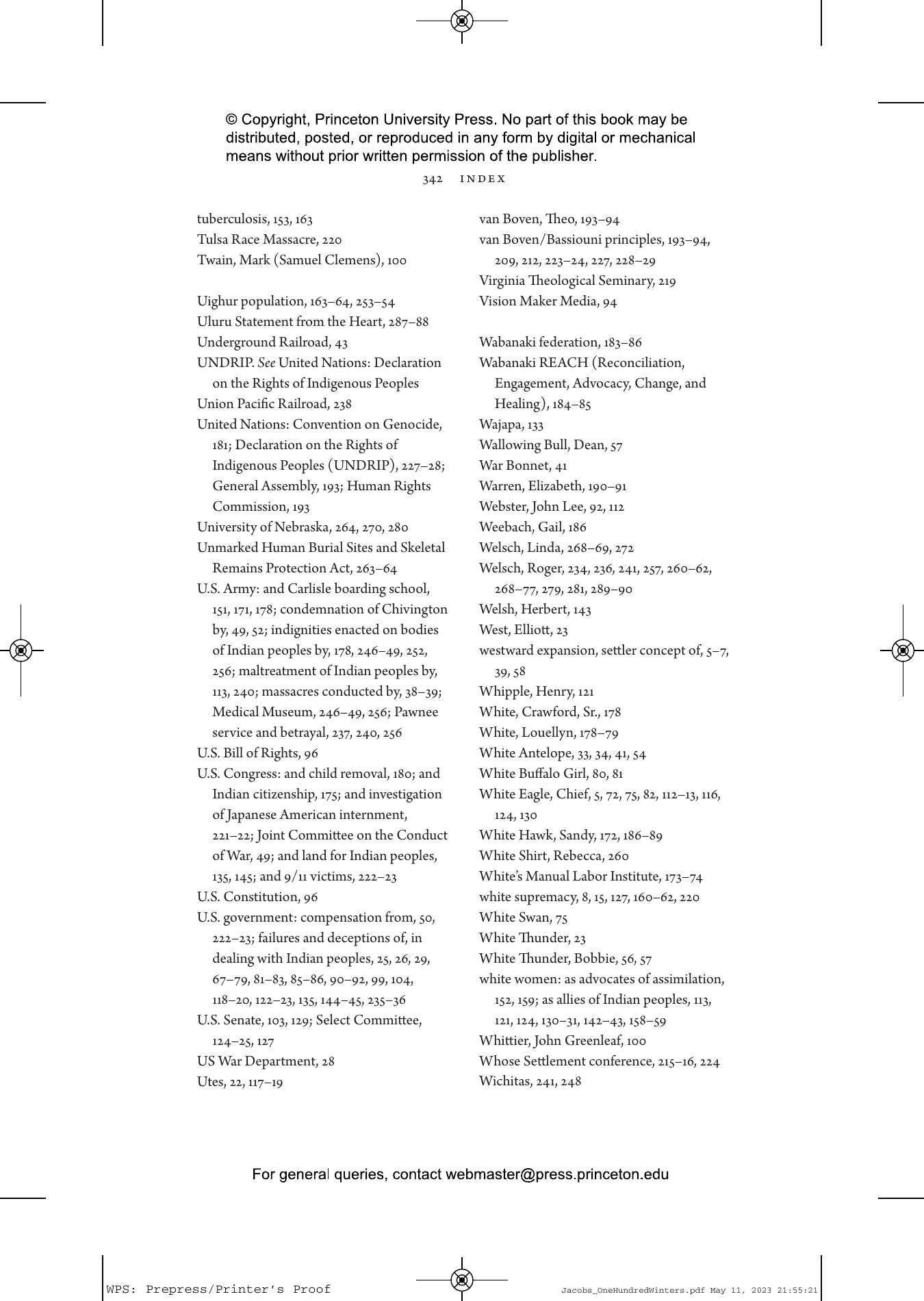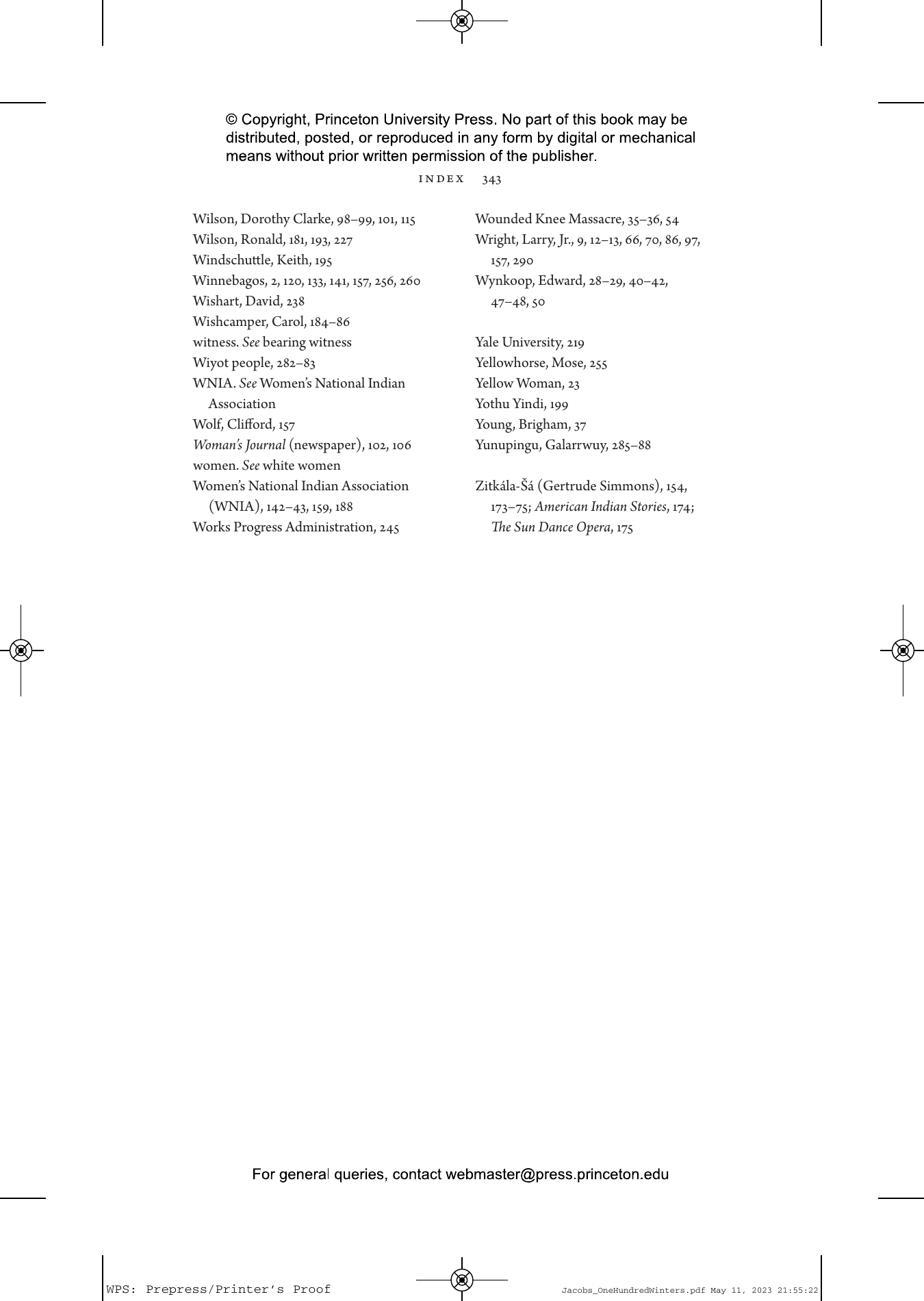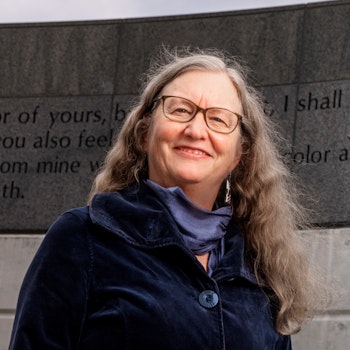After One Hundred Winters confronts the harsh truth that the United States was founded on the violent dispossession of Indigenous people and asks what reconciliation might mean in light of this haunted history. In this timely and urgent book, settler historian Margaret Jacobs tells the stories of the individuals and communities who are working together to heal historical wounds—and reveals how much we have to gain by learning from our history instead of denying it.
Jacobs traces the brutal legacy of systemic racial injustice to Indigenous people that has endured since the nation’s founding. Explaining how early attempts at reconciliation succeeded only in robbing tribal nations of their land and forcing their children into abusive boarding schools, she shows that true reconciliation must emerge through Indigenous leadership and sustained relationships between Indigenous and non-Indigenous people that are rooted in specific places and histories. In the absence of an official apology and a federal Truth and Reconciliation Commission, ordinary people are creating a movement for transformative reconciliation that puts Indigenous land rights, sovereignty, and values at the forefront. With historical sensitivity and an eye to the future, Jacobs urges us to face our past and learn from it, and once we have done so, to redress past abuses.
Drawing on dozens of interviews, After One Hundred Winters reveals how Indigenous people and settlers in America today, despite their troubled history, are finding unexpected gifts in reconciliation.
Awards and Recognition
- Shortlisted for the Reading the West Book Award in Nonfiction
- Winner of the Cover & Design Award, The Nebraska Center for the Book
Margaret D. Jacobs is the Charles Mach Professor of History and director of the Center for Great Plains Studies at the University of Nebraska–Lincoln. Her books include White Mother to a Dark Race: Settler Colonialism, Maternalism, and the Removal of Indigenous Children in the American West and Australia, 1880–1940. Website reconciliationrising.org
"The book recounts massacres and broken treaties, and pays particular attention to the Friends of the Indian movement, white activists whose misguided assimilationist enterprises further eroded Indigenous nations. Jacobs, who is not herself Indigenous, emphasizes the importance of centering Native Americans’ own understanding of this history. She also highlights people of settler descent who have amplified Native voices and pushed for justice—not to portray them as heroes but to illuminate a potential path toward reconciliation.
"—The New Yorker
"After One Hundred Winters offer benchmark conversations enriching to western literature with accurate depictions of tribal cultures and diversity in the American West."—Meredith Eliassen, Western American Literature
“When the Ponca people were forcibly removed from their homelands more than a century ago, they carried their seeds with them. In this compassionate and honest reckoning, Margaret Jacobs confronts a long history of settler theft and violence against Indigenous people, and reveals how settler accountability and efforts at collective action can restore fractured relationships. After One Hundred Winters is a moving, vital story of how those very seeds made their way back, in Ponca hands, to their homelands to take root again. May this book be a seed of its own.”—Beth Piatote, author of The Beadworkers: Stories
“Prizewinning historian Margaret Jacobs offers a clear-eyed and heartrending look at the fraught historical relationship between Indigenous people and newcomers that highlights Indigenous survivors and descendants while calling to account all of us who have benefitted from Indigenous land. After One Hundred Winters is a necessary book for this moment.”—Tiya Miles, author of All That She Carried: The Journey of Ashley’s Sack, a Black Family Keepsake
“Jacobs offers a clear-eyed, deeply informed indictment of our nation’s crimes against Indigenous people, but also reveals a pathway toward redemption. This wise, remarkable book will convince readers that the road to reconciliation is one we must take, guided not by guilt or shame but by understanding, respect, justice, and hope.”—Sherry L. Smith, author of Bohemians West: Free Love, Family, and Radicals in Twentieth-Century America
“After One Hundred Winters shines light on today’s efforts at Indigenous-settler reconciliation and places them in a context informed by Jacobs’s deep understanding of settler colonialism. At a time of growing awareness of historical injustice and the pressing need for concrete actions to redress it, this important book will be of broad public interest.”—Jeffrey Ostler, author of Surviving Genocide: Native Nations and the United States from the American Revolution to Bleeding Kansas
“After One Hundred Winters is at once devastating and uplifting. In a powerful narrative brimming with hope and decency, Jacobs shows the importance of reconciliation, not as a glib slogan but as a deeply personal and meaningful cross-cultural dialogue. This book deserves to be read widely and deeply.”—Lynette Russell, Monash Indigenous Studies Centre, Monash University
